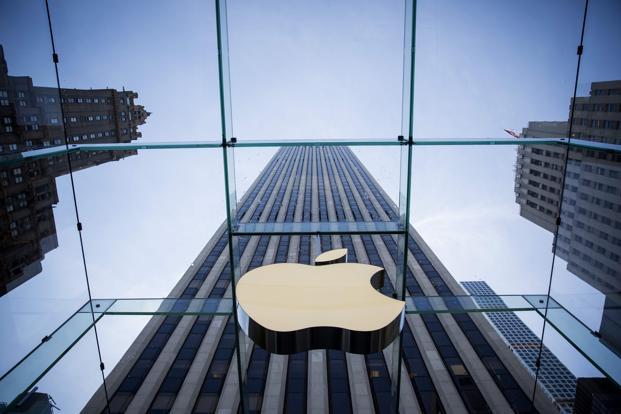Apple says will pay US$38b in taxes on repatriated profits
 |
| photo AFP |
The iPhone maker said in a statement it plans to use some of its foreign cash stockpile, which qualifies for reduced tax rates under a recent bill, to invest in new projects.
Apple, which claims to be the largest US taxpayer, is also one of the largest beneficiaries of a tax bill passed by Congress in December which lowers the rate of repatriated profits to around 15 per cent and cut the corporate tax rate to 21 per cent from 35 per cent.
The tech giant had built a stockpile of more than US$250 billion in overseas holdings, claiming it was not in the interests of shareholders to repatriate the money with a 35 per cent tax rate.
Apple said it will now use a large chunk of the overseas cash for US investments.
It said it expects to invest over US$30 billion in direct capital expenditures in the US over the next five years, creating some 20,000 new jobs, and claimed the move would contribute US$350 billion in economic activity in the US.
"Apple is a success story that could only have happened in America, and we are proud to build on our long history of support for the US economy," said Apple chief executive Tim Cook.
"We believe deeply in the power of American ingenuity, and we are focusing our investments in areas where we can have a direct impact on job creation and job preparedness. We have a deep sense of responsibility to give back to our country and the people who help make our success possible."
SECOND CAMPUS
Apple planned to spend more than US$10 billion on US data centres, which play an increasingly important role as the California-based iPhone maker focuses on increasing revenue from services and content based in the internet 'cloud.'
The company also said it will establish a second Apple campus, at a location to be disclosed later this year, that will initially house technical support for customers.
Apple already spent billions of dollars on a new 'space ship' campus in its home city of Cupertino in Silicon Valley.
Apple reported that it currently employs 84,000 people in the US.
As is the case with Apple's other US facilities, the new campus will be entirely powered by renewable energy, the company said.
Apple will also boost the size of its Advanced Manufacturing Fund five-fold, to US$5 billion, with the money earmarked to back expansion projects of suppliers in the US.
Apple investing in high-tech manufacturing in the United States was considered rare common ground with US President Donald Trump, who hammered away at the theme during his campaign for office.
RECORD HIGH
Apple shares closed the official Nasdaq trading day at a record high of US$179.10.
It was revealed late last year in leaked financial documents known as the Paradise Papers that Apple shifted much of its offshore wealth from Ireland to a tax haven in the British Isles.
After the US technology colossus stated publicly in 2013 that it was paying its proper share of taxes, it moved the bulk of its untaxed overseas cash to Jersey, a British dependency in the Channel Islands, various media organizations reported, based on the once-secret cache of documents.
The documents shared with some media outlets by the US-based International Consortium of Investigative Journalists have exposed tactics the wealthy and powerful have used to avoid taxes.
The world's most valuable company noted at the time that it has earmarked US$36 billion to cover deferred US taxes.
Prior to 2014, Apple had taken advantage of tax rules to route overseas revenue through Irish subsidiaries to minimise taxes.
Apple said at the time that reforming the international tax system to make it simpler is "essential" and needed to "remove the current tug of war between countries over tax payments."
Tax reform recently passed by the US Congress has been touted by Trump as a way to stimulate investment and hiring, despite criticism that it most benefits corporations and the wealthy.
What the stars mean:
★ Poor ★ ★ Promising ★★★ Good ★★★★ Very good ★★★★★ Exceptional
Latest News
More News
- The generics industry: unlocking new growth drivers (February 04, 2026 | 17:39)
- Vietnam ready to increase purchases of US goods (February 04, 2026 | 15:55)
- Steel industry faces challenges in 2026 (February 03, 2026 | 17:20)
- State corporations poised to drive 2026 growth (February 03, 2026 | 13:58)
- Why high-tech talent will define Vietnam’s growth (February 02, 2026 | 10:47)
- FMCG resilience amid varying storms (February 02, 2026 | 10:00)
- Customs reforms strengthen business confidence, support trade growth (February 01, 2026 | 08:20)
- Vietnam and US to launch sixth trade negotiation round (January 30, 2026 | 15:19)
- Digital publishing emerges as key growth driver in Vietnam (January 30, 2026 | 10:59)
- EVN signs key contract for Tri An hydropower expansion (January 30, 2026 | 10:57)
















 Mobile Version
Mobile Version